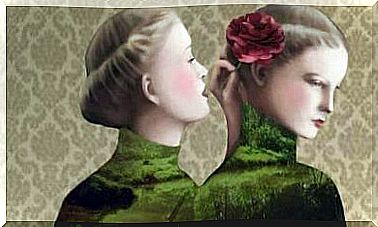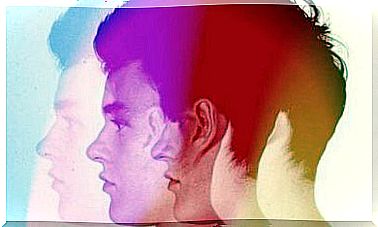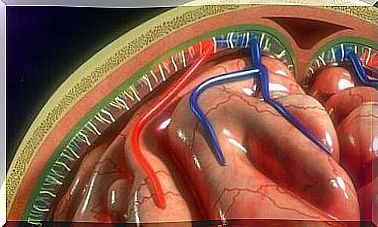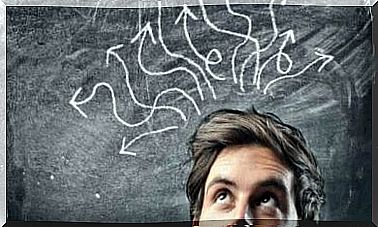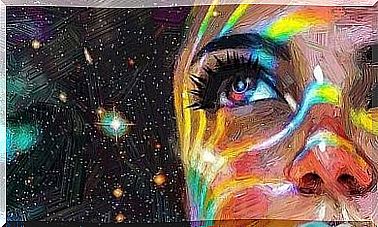Affection Amivalence: When Love And Hate Coexist

Devotional ambivalence is a representation of human complexity. It is able to hate and love at the same time. There is also a feeling of affection and deception and excitement and sadness at the same time. In fact, these are as frequent as they are normal.
Devotional ambivalence is a type of complex feelings of opposition and tension. An example is when you love and hate someone at the same time. This means that you can have a great affection for the person close to you, but oppose them at the same time. Even if you want to be a friend, you’re in pain.
Why do people have these conflicting and unwanted feelings on more than one occasion? Is this normal, or is it a period of imbalance? The fact is that this reality is completely normal. At the same time, it involves the enormous complexity of man in terms of emotions.
Studies regarding devotional ambivalence
Not surprisingly, this topic is of great interest to the scientific community, and there have been several studies and studies related to this topic. It seems like something out of a novel for neurologists, psychiatrists and experts in emotional psychology. Thus, it shows that it is a fact of how intricate the composition of your emotions can be in your relationships.
Researchers such as Frenk van Harreveld at the University of Amsterdam conducted a study on it. They concluded that affectional ambivalence not only determines how you feel, but it is also an inner complexity that forces you to act in certain ways. For example, there are women who experience postpartum emotional ambivalence.
They love their new baby, but suddenly feel a chaotic mix of feelings of exhaustion, rejection, tenderness and fear that define the first months of motherhood.

Devotional ambivalence: Characteristics that define it
Whether you suffer or enjoy it, the emotion of devotion is the emotion all people have once in a lifetime. When it comes to emotions, names like Daniel Goleman or Paul Eckman probably come to mind. However, it is worth mentioning that it has been studied since the beginning of the 20th century.
Eugen Leuler discovered the ambivalence of affection in 1911. At the time, he described it as a simultaneous presence of two opposing emotions, which are attraction and repulsion. This constitutes two opposing directions of will.
Since then, the field of psychology has shown a continuous interest in a topic that seems like two different areas. Despite the fact that affection ambivalence is so common in relationships, the field of social psychology has become interested in it in recent years.
What is the reason for this? Many of the decisions people make are conflicting. For example, you want to buy this, but you can not right now. Or you want that job in another country, but you do not want to take the risk of leaving your home.
Contradiction causes pain
Devotional or emotional ambivalence creates extreme unrest. Unfortunately, the energy and wear of this type of dissonance is enormous. So much so that sometimes you are even overwhelmed by your emotions. Suddenly you become aware of the great love or affection you feel for someone or something. At the same time, you feel exhausted, rejected, and even hated.

You may love someone, but loathe their behavior and attitudes, including the way they treat you. At the same time, remember your adolescence. The important stage in your life is a constant contradiction in the search for experiences. For example, there is fear, anxiety, desire, intensity and anguish at the same time. It is not easy to deal with this kind of internal contradiction, and we are all aware of it.
Emotional ambivalence pushes you to make decisions
We all know that affection or emotional ambivalence is synonymous with opposition. However, there is a positive effect in this. This is what makes you decide, clarify or even accept certain situations. For example, mothers who experience postpartum depression gradually accept their new realities.
When you love and hate someone at the same time, it makes you understand the reality of this feeling. Is love more important than hate? Is this contradiction natural? Or is hatred a fact that you should be aware of in order to make decisions?
Dr. Laura Ress from the University of Michigan conducted a study in 2013 that yielded interesting results: Devotional ambivalence encourages self-awareness. That restlessness is something the brain needs to calm and resolve. In fact, it has been shown that these types of contradictions increase your creativity. It also makes you look for ways to think and discover what you believe at the same time. Maybe you come up with original answers to solve the contradiction.
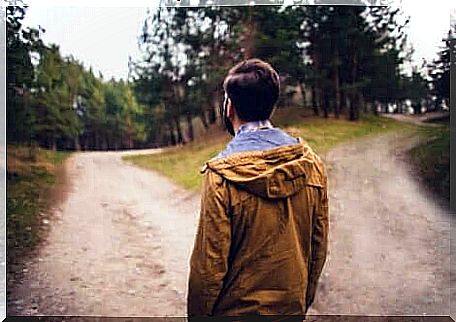
Finally, when you see yourself in this kind of personal maze, it is a good idea to stop, listen and understand. Maybe there is something you need to deal with or solve.
Life itself is an opposition and emotions even more. Loving is obviously not easy and requires a lot of responsibility.
